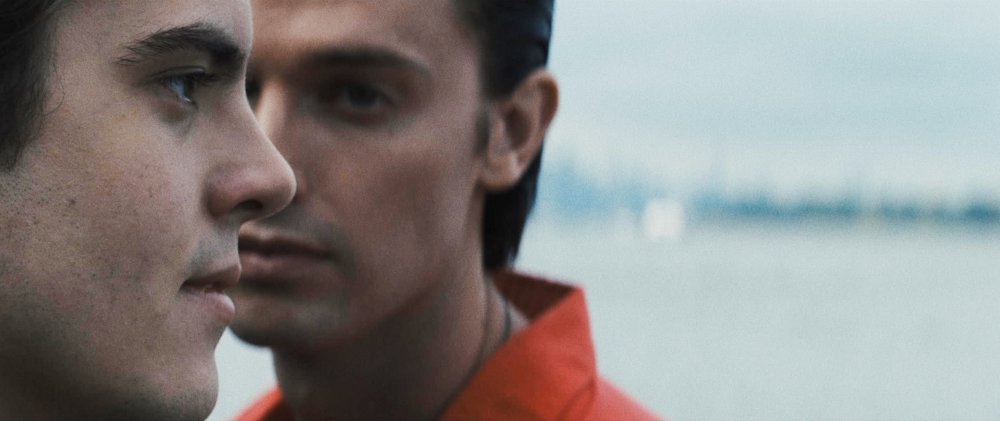Two consecutive incidents of escalating traumatic intensity portend the arrival of Luke’s imaginary friend Daniel in this second feature from director Adam Egypt Mortimer. Witnessing a kitchen row between his father and mother, frightened little Luke sneaks out of their Brooklyn Heights home – only to clock a bloodied dead body in the doorway of a nearby diner, the victim of a gun massacre carried out by a disturbed young man. It’s a tense, shocking start, one that signals the high levels of anxiety subsequently faced by the grown-up Luke (Miles Robbins) and, by extension, the film’s viewers.
USA 2019
Certificate 15 100m 14s
Director Adam Egypt Mortimer
Cast
Luke Miles Robbins
Daniel Patrick Schwarzenegger
Cassie Sasha Lane
Claire Mary Stuart Masterson
Sophie Hannah Marks
Braun Chukwudi Iwuji
[2.35:1]/span>
UK release date 7 February 2020
Distributor Arrow Films
arrowfilms.com/daniel-isn-t-real
► Trailer
When Luke reaches college 12 years after the opening incidents, his father long absent and mother Claire erratically cutting pages from books and plastering them on walls, fissures in his own mental health emerge and, with them, the reappearance of Daniel (Patrick Schwarzenegger). This adult pairing forms the crux of Mortimer’s psychological thriller and provides the film’s most interesting moments. An emblematic and ominous scene in which Luke breaks into a library with fledging artist/love interest Cassie (Sasha Lane) sees Daniel read quotes from books for Luke to recite to impress her – with Daniel, as always, seen and heard by Luke and us alone. Daniel becomes furious when Luke refuses to repeat his exact wording. Control, a lack of it and losing it, is key. For all the good Daniel’s confidence brings Luke, he’s a sadist first and a friend second: in steam tunnels under their college, ‘Daniel’ attacks Luke’s roommate Richard, burning him on scalding pipes. Inevitably, more violence and murder follow as Luke realises he can’t just wish or medicate Daniel away, even after he enlists the help of a psychiatrist.
Split personality/imaginary friend narratives have been a literary trope since Robert Louis Stevenson gave the world Jekyll and Hyde in 1886, and have frequently been used in cinema, for example in M. Night Shyalaman’s The Sixth Sense (1999). For Daniel Isn’t Real, co-writers Mortimer and Brian DeLeeuw have adapted DeLeeuw’s novel In This Way I Was Saved so that it plays like a smart psychological teen horror, an urban counterpart to Richard Kelly’s Donnie Darko (2001), though with more bloodshed.
Editor Brett W. Bachman keeps scenes feeling brisk, edgy and untamed, echoing Luke’s state of mind and that of the schizophrenic Claire (performed with care by Mary Stuart Masterson). Clark’s score, Lyle Vincent’s vivid cinematography and Kaet McAnneny’s striking production design ensure a unified look and sound, in keeping with other recent productions from the SpectreVision stable such as Mandy (2018) and Color out of Space (2019). As tormented Luke, Robbins – son of Tim Robbins and Susan Sarandon – is compelling, funny and enigmatic. Schwarzenegger is deliciously nefarious as Daniel, even if he’s not quite as accomplished a killer as his own father in The Terminator (1984).
-
The 100 Greatest Films of All Time 2012

In our biggest ever film critics’ poll, the list of best movies ever made has a new top film, ending the 50-year reign of Citizen Kane.
Wednesday 1 August 2012
-
The best films now on UK streaming services

Looking for the best new cinema releases available on British VOD platforms? Here’s our guide to how to keep up with the latest movies while you’re...
-
The Digital Edition and Archive quick link
Log in here to your digital edition and archive subscription, take a look at the packages on offer and buy a subscription.







